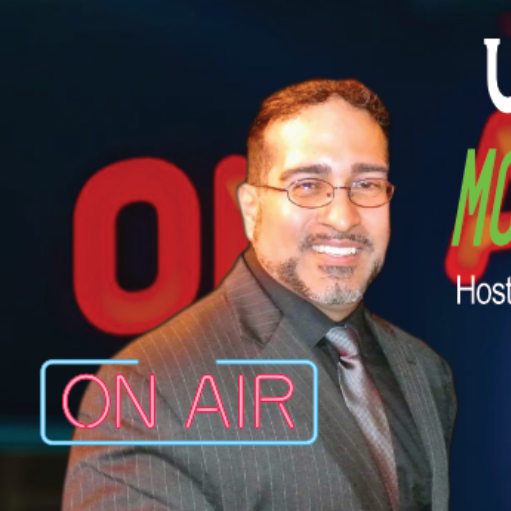Great googa-looga, what would The Temptations say today?
Back in 1970 the iconic Motown group summed up their view of the world in their hit tune “Ball of Confusion,” singing about “segregation, determination, demonstration, integration, aggravation, humiliation, and obligation to our nation.”
💵💰Don’t miss the move: Subscribe to TheStreet’s free daily newsletter 💰
Bear in mind, this was all before the internet, smartphones, artificial intelligence and Elon Musk.
Now, the confusion has multiplied astronomically since the days when gasoline went for 36 cents a gallon, as this pummeled planet and its inhabitants contend with tariffs, inflation and trouble in the Mideast.
Related: Surprising jobs data shows economy in flux
Speaking of which, Iran’s supreme leader, Ayatollah Ali Khamenei, claimed on June 26 that the US “gained no achievements” from strikes on its nuclear facilities, the BBC reported, while US Defense Secretary Pete Hegseth said the operation “significantly damaged the nuclear program, setting it back by years.”
TheStreet Pro’s Tchir: Mideast seeks to move beyond conflict
“Whether we destroyed Iran’s nuclear facilities or not, I certainly think we damaged them,” said Peter Tchir, head of Macro Strategy at Academy Securities of San Diego and a contributor to TheStreet Pro.
“It’s meant to push Iran, but I think it’s also meant to signal to China, to Russia, that, ‘hey, we are not afraid to do what we need to do to protect our interests.'”
More Wall Street Analysts:
- Analysts reboot Olive Garden parent’s stock price targets as earnings loom
- Analysts revamp forecast for Nvidia-backed AI stock
- Intuitive Surgical analyst raises eyebrows with new stock price target
Tchir commented during a conversation with Chris Versace, lead portfolio manager for TheStreet Pro Portfolio, in the June 25 edition of TheStreet Stocks & Markets Podcast.
“Our view has been that the Middle East is desperate to move beyond conflict and fossil fuels,” Tchir said. “Saudi Arabia wants to become the data-center capital of the world. They are excited. [Nvidia CEO] Jensen Huang came over. They’re going to buy Nvidia chips. They want to move us on. And I don’t know whether they’re outright helping Israel but they certainly aren’t on Iran’s side.”
And to tie in one last piece, Tchir added, “I think our view is that China is probably telling them, ‘hey, it’s not in our interest for you to shut down the Straits of Hormuz. It’s probably not in your interest to do that.'”
“So, all these things tell me that this is near the end rather than early innings of some sort of negotiated peace,” he said.
Versace noted that in addition to the Mideast effort, President Donald Trump has threatened to impose 50% tariffs on all European Union goods on July 9.
“I think on trade we’re going to boil down that we expect pauses and extensions to be the norm,” Tchir said. “I think one thing about this administration is that relatively, they’re way better staffed up front than Trump 1.0 was. But not every deputy undersecretary has been in place. It’s unclear whether all the staffs are in place.”
Tchir: Trump is moderating tariff policy
He said Secretary of State Marco Rubio “is effectively doing two full-time jobs right now.”
“So I think this administration is very Trump-centric,” Tchir said. “And he has his handful of people who do a lot of this. So I think that’s a limiting factor. How many things can you do if your main people who work on one thing are in the Ready Room getting ready for this attack? Other people are. You just don’t have that.”
About tariffs, Tchir said that “I’m a little bit afraid that Trump might be encouraged by how well the stock market has done and decide, let’s give tariffs another go. I don’t think that happens. …
Related: Fannie Mae chief Pulte sends savage one-word message to Fed’s Powell
“The other thing is I think he’s listening to a lot more people. … If you look at migration issues he’s clearly listening now to farmers. He’s listening to the hotel and leisure business and seems to be backing off a little bit there and making concessions that would allow those migrants to stay.
“And I think and I keep hearing that he’s hearing a lot more from small and midsize businesses, through chambers of commerce and direct connections, and through a lot of the state representatives or local representatives, that, ‘hey, you are hurting your base. Small and midsize business people loved you. You are not helping them right now.’
“So I think he’s moving away and hopefully we can move on to national production, for national security, other things that are far less tense and zero-sum games.”
TheStreet Pro’s Versace: Corporate outlooks will be more cautious
Versace said he suspected companies would likely guide more cautiously, “something similar that we saw in the March-quarter earnings season.
“And we’ll see consensus EPS numbers for the S&P 500 in the back half of the year come down,” Versace said. “But I also think that past a certain point, Trump needs to get some wins on the board. And I think once you get that first domino to fall, call it China, call it the EU, call it the UK, it becomes easier for the others to fall on top as well.”
“I completely agree that he needs some more wins. And I think if Iran plays out like we think, that will actually be a win,” Tchir said. “Obviously it’s not trade-related, but I think that momentum carries into other things.. It’s all of a sudden people may look at the president as, oh, ‘now you’ve won. Now you’ve done something aggressive, you’ve done something different than we expected.'”
“And I think that could translate into trade deals,” he added. “I think it would be helpful.”
Related: Fund-management veteran skips emotion in investment strategy
